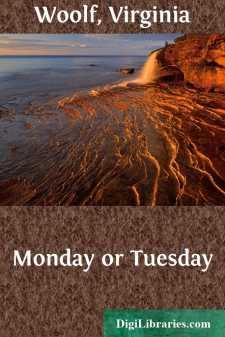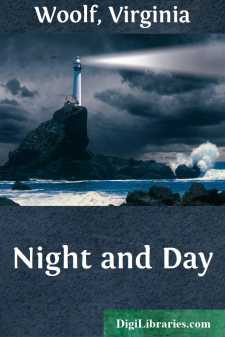Categories
- Antiques & Collectibles 13
- Architecture 36
- Art 48
- Bibles 22
- Biography & Autobiography 813
- Body, Mind & Spirit 142
- Business & Economics 28
- Children's Books 13
- Children's Fiction 10
- Computers 4
- Cooking 94
- Crafts & Hobbies 4
- Drama 346
- Education 46
- Family & Relationships 57
- Fiction 11828
- Games 19
- Gardening 17
- Health & Fitness 34
- History 1377
- House & Home 1
- Humor 147
- Juvenile Fiction 1873
- Juvenile Nonfiction 202
- Language Arts & Disciplines 88
- Law 16
- Literary Collections 686
- Literary Criticism 179
- Mathematics 13
- Medical 41
- Music 40
- Nature 179
- Non-Classifiable 1768
- Performing Arts 7
- Periodicals 1453
- Philosophy 64
- Photography 2
- Poetry 896
- Political Science 203
- Psychology 42
- Reference 154
- Religion 513
- Science 126
- Self-Help 84
- Social Science 81
- Sports & Recreation 34
- Study Aids 3
- Technology & Engineering 59
- Transportation 23
- Travel 463
- True Crime 29
Virginia Woolf
Virginia Woolf was an influential British writer and a key figure in modernist literature. Known for her innovative narrative techniques, she pioneered the use of stream of consciousness in novels like "Mrs. Dalloway" and "To the Lighthouse." Woolf's works often explored themes of identity, time, and the inner thoughts of her characters, with a particular focus on women's experiences. Her essay "A Room of One's Own" remains a foundational text in feminist literary criticism.
Author's Books:
Sort by:
by:
Virginia Woolf
Chapter I As the streets that lead from the Strand to the Embankment are very narrow, it is better not to walk down them arm-in-arm. If you persist, lawyers' clerks will have to make flying leaps into the mud; young lady typists will have to fidget behind you. In the streets of London where beauty goes unregarded, eccentricity must pay the penalty, and it is better not to be very tall, to wear a...
more...
by:
Virginia Woolf
A HAUNTED HOUSE Whatever hour you woke there was a door shutting. From room to room they went, hand in hand, lifting here, opening there, making sure—a ghostly couple. "Here we left it," she said. And he added, "Oh, but here too!" "It's upstairs," she murmured. "And in the garden," he whispered. "Quietly," they said, "or we shall wake them." But it...
more...
by:
Virginia Woolf
CHAPTER I It was a Sunday evening in October, and in common with many other young ladies of her class, Katharine Hilbery was pouring out tea. Perhaps a fifth part of her mind was thus occupied, and the remaining parts leapt over the little barrier of day which interposed between Monday morning and this rather subdued moment, and played with the things one does voluntarily and normally in the daylight....
more...
by:
Virginia Woolf
CHAPTER ONE "So of course," wrote Betty Flanders, pressing her heels rather deeper in the sand, "there was nothing for it but to leave." Slowly welling from the point of her gold nib, pale blue ink dissolved the full stop; for there her pen stuck; her eyes fixed, and tears slowly filled them. The entire bay quivered; the lighthouse wobbled; and she had the illusion that the mast of Mr....
more...





